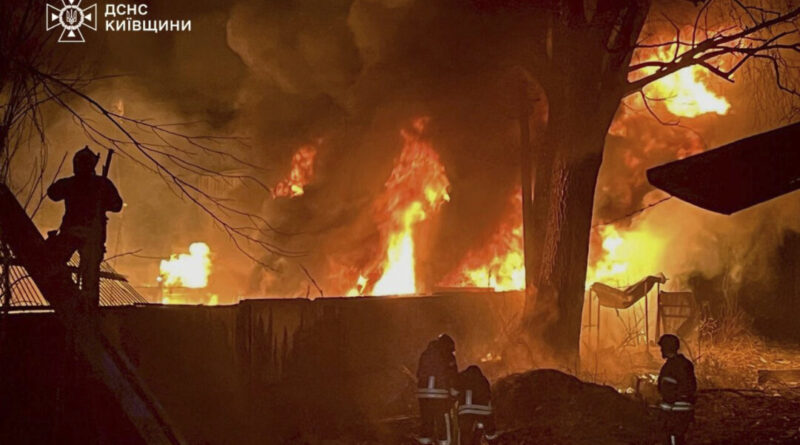Ukrainian Bond Yields Decrease as Prospects Dim for Rapid US-Supported Cease-Fire
Moscow is in touch with Washington but the issues being discussed require extra effort to resolve.
The value of Ukrainian government bonds dropped this week as hopes for a U.S.-brokered cease-fire deal between Russia and Ukraine faded.
Ukraine’s 2036 dollar bond fell by 3 cents to 54 cents on the dollar, down from nearly 70 cents when U.S.–Russia talks began in February.
“The market is starting to believe that the conflict will last longer,” said Kaan Nazli, an emerging market portfolio manager with Neuberger Berman, which holds Ukrainian debt.
Recent optimism in the Ukrainian bonds was based on the expectation that U.S. President Donald Trump would fulfill his promise to swiftly end the years-long Russia-Ukraine conflict.
In mid-February, key U.S. and Russian officials held significant talks in Saudi Arabia to explore ways to end the conflict.
After a recent round of talks in Saudi Arabia, the United States brokered a Russia–Ukraine cease-fire aimed at ending hostilities in the Black Sea.
During talks, Russia and Ukraine committed to not attacking each other’s energy infrastructure.
However, both sides have accused each other of violating the cease-fire agreement since it was reached on March 24.
On March 30, Ukrainian President Volodymyr Zelenskyy claimed that Russia had sent over 1,000 drones to attack Ukrainian targets in the past week.
Meanwhile, Moscow accused Kyiv of launching drone and missile attacks on Russian energy facilities during the same period.
Hopes for a limited cease-fire diminished further after Trump suggested that Russia was to blame for the ongoing hostilities.
“If Russia and I fail to agree on halting the bloodshed in Ukraine, and if I believe it was Russia’s fault … I will impose secondary tariffs on all Russian oil imports,” Trump told NBC News on March 30.
“So, if you buy oil from Russia, you can no longer do business in the United States.”
In subsequent comments to reporters, Trump expressed frustration with the Russian leader but indicated that progress was being made gradually.

President Donald Trump speaks to reporters while returning to Washington on Air Force One on March 30, 2025. Brendan Smialowski/AFP via Getty Images
‘Very Difficult’
Trump accused Zelenskyy of trying to back out of a potential minerals deal with the United States and warned of consequences if he did so.
“He’s trying to back out of the rare earth deal,” Trump said to reporters on Air Force One. “And if he does that, he’s got some problems—big, big problems.”
If the deal is finalized, Ukraine would have to surrender all profits from its mineral resources to repay its debts from the conflict, along with interest, to the United States.
On April 1, Ukrainian Foreign Minister Andrii Sybiha stated that Kyiv would collaborate with the United States to find mutually agreeable terms for the minerals deal.
“This process will continue and we will work with our American colleagues to reach a mutually agreeable text for signing,” Sybiha said to reporters.
Moscow affirmed that it is staying in touch with Washington to eventually end the conflict, acknowledging the complexity of the issues at hand.
“We are continuing our contacts with the American side,” said Kremlin spokesman Dmitry Peskov on April 1.
“The topic is very difficult. The matters we are discussing are related to the Ukrainian resolution—they require a lot of additional effort.”
Reuters contributed to this report.





